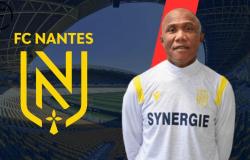Since Pascal Leclaire’s controversial comments about Cole Caufield, the Quebec media scene has been the scene of a veritable public lynching.
“Cole Caufield is so useless when he doesn’t score that he should be sent to the stands. »
Leclaire questioned Caufield’s usefulness outside of his offensive prowess, pointing out that his defensive play left something to be desired and suggesting that, without his goals, Caufield wasn’t contributing enough to the team to warrant his spot on the ice.
This remark immediately provoked an intense reaction from the Canadiens’ supporters, who never accepted Leclaire’s comments.
The former goalkeeper’s scathing comments sparked a tidal wave of criticism, to the point where Leclaire had to disappear from the airwaves of TVA Sports and La Poche Bleue for a few days, caught up to his neck in the turmoil.
But while he and his family are going through hell because of the virulence of the online attacks, Alain Crête brutally drove home the point with unrestrained declarations.
The question arises: did Crête really need to hit a man already on the ground?
In a direct and unequivocal comment, Alain Crête rejected outright Leclaire’s criticism of Caufield’s defensive play. Angered by his colleague’s comments, Crête was simply scathing:
“Please be patient with Caufield’s defense. I’ll tell you a deal. This is the Caufield we saw two years ago before he was stopped by his injury and had shoulder surgery. »
Alain Crête has made it clear that he does not care about defensive expectations for Caufield, saying that his offensive contribution is much more important for the Canadian. He insisted:
“Defense, there are a lot of guys who can play that in this club. Give me patience. If the guy has a score of 40. Good for him. Good for the club. »
@bpmsportsradio “Please be patient with Caufield’s defense! » – Alain Crête ????⚪️???? Your opinion? ???? #caufield #habs #ch ♬ original sound – BPMSPORTSRADIO
For Crête, Caufield’s offensive contribution is what counts, and he doesn’t care that Leclaire highlighted defensive shortcomings. He went so far as to point out that even legends like Mike Bossy were not known for their defensive play, but for their scoring talent:
“Was Mike Bossy asked to play defense? Give me patience. »
Since the criticism exploded, Leclaire has disappeared from the sets of TVA Sports and La Poche Bleue, overwhelmed by a wave of hatred and mockery online.
Personal attacks and degrading comments, sometimes even directed at his family, turned his life into a nightmare.
Those close to him live under constant pressure, bearing the brunt of the consequences of Leclaire’s comments. The violence of the criticism went well beyond simple sporting opinion.
And yet, Alain Crête, by adding a layer, has in some way legitimized these attacks by publicly ridiculing Leclaire.
Crete’s uncompromising stance has divided public opinion. For some, Crête simply expressed a truth that needed to be told: Caufield is an offensive asset and his role is not to focus on defense.
But for others, this intervention lacked sensitivity and compassion. By directly targeting Leclaire with harsh words, Crête reignited the controversy and intensified criticism against the former goalkeeper.
“Crête may be right, but he could use a little respect. Leclaire is already on the ground. Why drive the point home? »
“Frankly, Alain, it’s not by demolishing another analyst that you serve the team. A little decency wouldn’t hurt. »
“Caufield’s defense? We don’t care. But publicly tearing a guy down? This is a lack of professionalism. »
This saga exposes a disturbing reality in the world of sports media: as soon as an opinion falls outside of popular expectations, it is harshly punished.
For Leclaire, who was trying to offer a critical analysis of Caufield’s game, the consequences were brutal. Crête, by adopting a mocking tone, has in some way validated the idea that any criticism of a young popular talent is intolerable.
Caufield is not required to focus on defense according to Crête, and any such criticism is, according to him, unfounded.
The fact that Leclaire was forced off the air for a few days could discourage other analysts from expressing less popular opinions.
Leclaire’s departure from the airwaves for a few days showed that there is a price to pay for expressing an unpopular opinion, especially in a market like Montreal, where it is forbidden to attack darlings like Caufield.
It must be said that sending him to the stands was really a strange, if not stupid, proposition.
By adding fuel to the fire, Alain Crête may have increased his popularity among those who idolize Caufield, but he also intensified the pain of Leclaire and his family.
Sometimes, a little restraint and compassion wouldn’t be too much in this world where words can hurt as much as actions.
The question remains open: can sports criticism still be expressed freely?
Or will analysts now have to conform to public expectations, at the risk of suffering the same fate as Pascal Leclaire?
In any case, no one is going to say that Caufield must go to the stands anymore.





